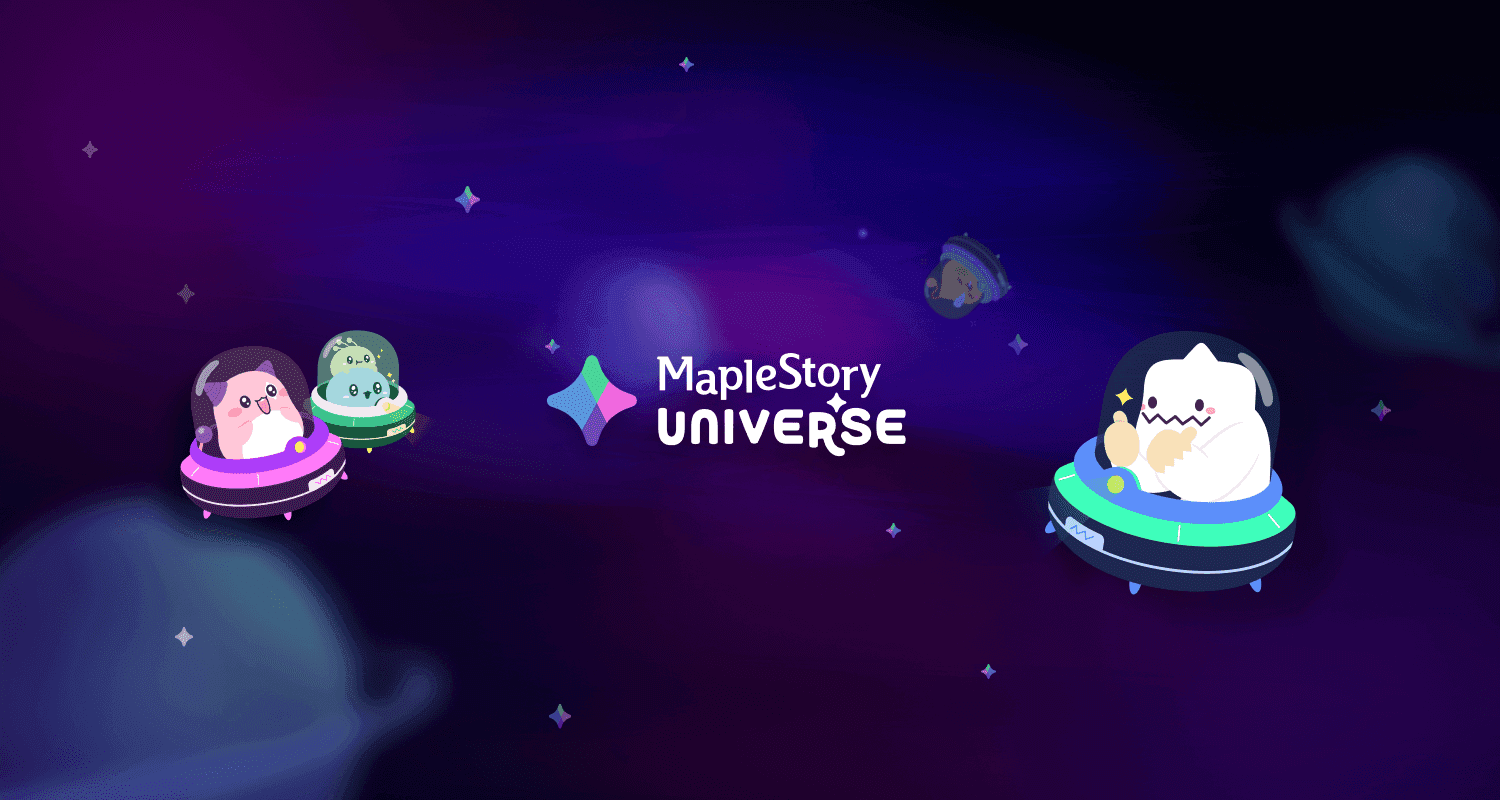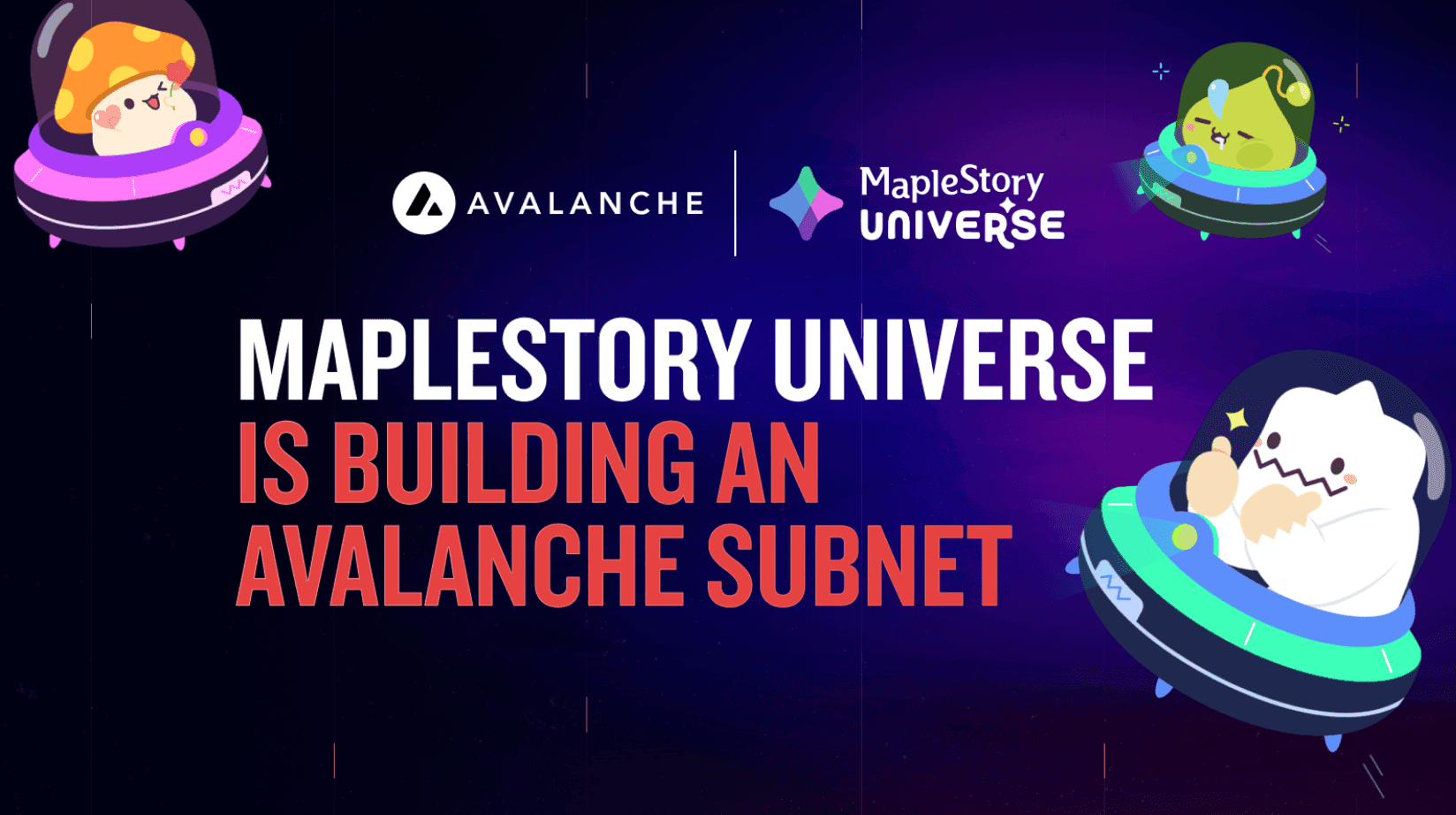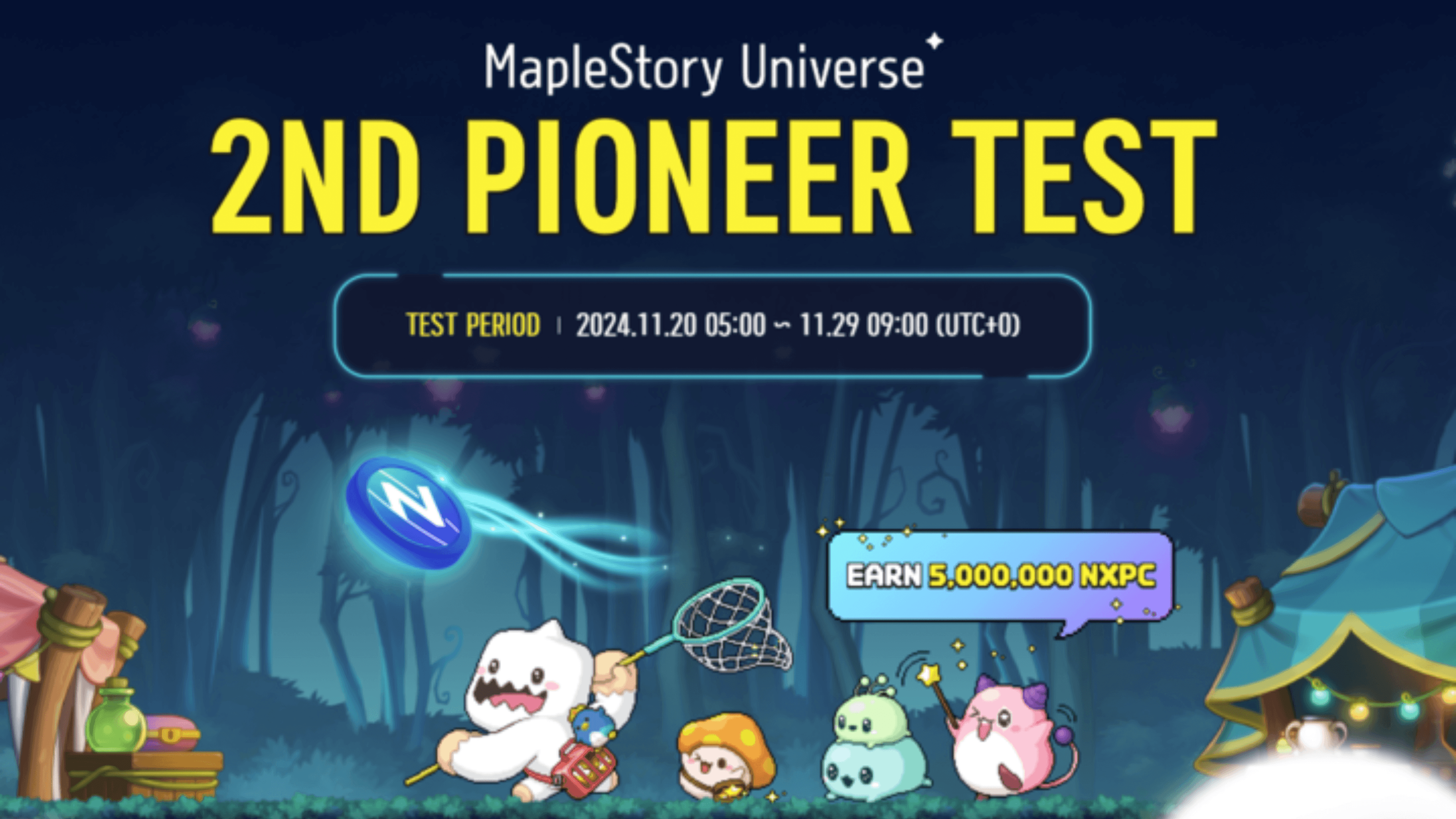The gaming industry is undergoing significant transformation, with web3 technologies reshaping how players engage with virtual worlds. MapleStory Universe, a major initiative in the gaming sector, is at the forefront of this shift. By incorporating blockchain into its infrastructure, MapleStory Universe is creating new and immersive experiences for its global community, which exceeds 250 million users.
About MapleStory Universe
MapleStory Universe introduces web3 elements to empower players by involving them in the game-building process, rewarding their contributions, and creating a more dynamic and interconnected ecosystem. To ensure these innovations were effectively implemented, the MapleStory Universe team required a robust, scalable, and flexible infrastructure. AvaCloud, built on Avalanche’s Layer-1 (L1), was chosen as the ideal solution to support this new direction in gaming.

MapleStory Universe: Transforming Gaming with Web3
The Need for Scalable and Reliable Infrastructure
Transitioning a long-established and beloved gaming franchise like MapleStory into a web3 ecosystem presents several challenges. One of the primary concerns is maintaining the seamless user experience that players expect, while also integrating blockchain technology. Initially, the MapleStory Universe team explored building on Polygon, but they encountered challenges related to customization and compatibility.
While various blockchains proposed creating a customized chain for the game, these suggestions often led to unforeseen complications such as issues with stability and predictability. AvaCloud’s customizable Avalanche L1 infrastructure addressed these concerns by providing a stable and highly predictable blockchain environment. This made it easier for MapleStory Universe to implement a hybrid off-chain/on-chain architecture without compromising the user experience.

MapleStory Universe Logo and Key Art
A Multi-Environment Solution for Development
MapleStory Universe required a variety of environments to facilitate the development and testing of its game. These included development environments for both front-end and back-end developers, test environments where game designers and developers collaborate, QA environments for testing, and staging environments for pre-live deployment checks.
If only a single blockchain were used across these environments, discrepancies between test and live systems could arise, disrupting the development process. AvaCloud solved this issue by enabling the creation of multiple lightweight test blockchain networks. This setup streamlined the development process, as the team could now easily configure and transition between test and live environments without the need for additional resources. The ability to quickly set up test environments proved to be a critical feature, reducing the complexity and time involved in deploying the game.

MapleStory Universe See Surge in Users
Why AvaCloud Was Chosen?
After evaluating various infrastructure options, AvaCloud was chosen by MapleStory Universe for its flexibility and ability to scale. The Avalanche-based L1 platform offered several key benefits that were crucial for the success of the project. Firstly, AvaCloud provided the necessary scalability to handle high transaction volumes, an essential feature considering the large number of users MapleStory Universe serves.
The platform’s proven reliability and security measures ensured that the game would operate seamlessly, even during peak usage times. AvaCloud also simplified the complex integration of web3 technologies, accelerating the time to market for the new game features. Furthermore, its energy-efficient design ensured sustainability, which is becoming an increasingly important consideration for long-term operational stability in gaming.

MapleStory Universe Chooses Avalanche
Supporting Web3 Features with AvaCloud
One of the key advantages of AvaCloud’s infrastructure is its ability to manage the complexities of blockchain technology, allowing MapleStory Universe’s developers to focus on game logic and innovation rather than the underlying technical infrastructure. AvaCloud’s platform offers high throughput and low latency, which are essential for ensuring smooth gameplay in a large-scale gaming environment. Additionally, AvaCloud’s customizable architecture provided the flexibility required to implement advanced features like meta-transactions and streamlined approval processes, which are important for enhancing user experience and making blockchain interactions more accessible.
MapleStory Universe also benefited from AvaCloud’s managed L1 infrastructure, data API, and interchain token transfer (ICTT) capabilities. These tools supported the game’s seamless integration of web3 mechanics, allowing for greater player engagement and ownership. By tokenizing in-game assets and integrating smart contracts, the game enabled players to own their virtual items and participate in a decentralized virtual economy. AvaCloud’s infrastructure ensured that these features could be implemented without disrupting gameplay or performance.

MapleStory Universe Key Art
A Focus on Player Ownership and Engagement
At the heart of MapleStory Universe’s web3 integration is a shift towards greater player control and participation. By leveraging blockchain technology, the game enables players to truly own their in-game assets and freely trade them within a virtual economy. This tokenized system fosters deeper player engagement, as individuals can actively participate in the game’s development and evolution, with rewards for their contributions. Smart contracts ensure fairness and transparency in game mechanics, providing players with automated interactions that maintain a high level of security.
Moreover, MapleStory Universe employs several innovative web3 features, such as the hybrid architecture that selectively anchors critical outcomes on-chain. This system ensures that important game events, like the results of random events, are tamper-resistant while not exposing proprietary game logic. The use of Chainlink’s Verifiable Random Function (VRF) ensures that random outcomes are fair and verifiable, creating a trustworthy environment for players. Additionally, features like the meta-transaction layer and the approve controller significantly reduce the need for players to interact with blockchain transaction approvals, making the gaming experience more accessible to a wider audience.

MapleStory Universe Gear Up Now Event See Over 150k Transactions
Achieving Seamless Integration and Scalability
The collaboration between MapleStory Universe and AvaCloud has yielded significant results, particularly in terms of user engagement and scalability. By offering players more control over their in-game assets and providing transparent, automated reward mechanisms, the game has fostered a deeper sense of investment and loyalty among its user base. AvaCloud’s infrastructure ensured that blockchain integration did not interfere with gameplay, enabling a smooth and uninterrupted experience for players.
AvaCloud’s scalability has also allowed MapleStory Universe to grow in parallel with the increasing adoption of web3 gaming. The robust infrastructure has made it easier for the game to accommodate more users and transactions, positioning the platform for long-term success. Additionally, AvaCloud’s solutions provided the necessary security and stability, which are essential for maintaining trust within the player community. By embedding an owner-enabled recovery function into its asset contracts, MapleStory Universe ensures that players are protected against potential service disruptions or exploits, further reinforcing the game’s commitment to user safety.

AvaCloud Website
Setting a Standard for Web3 Gaming
The partnership between MapleStory Universe and AvaCloud highlights the importance of selecting the right infrastructure for the successful implementation of web3 technologies in gaming. AvaCloud’s reliable and scalable infrastructure allowed MapleStory Universe to explore innovative features without compromising performance or user experience. The seamless integration of blockchain technology has set a new standard for decentralized gaming, where player engagement and ownership are prioritized, and operational complexity is managed effectively.
Looking to the future, MapleStory Universe is well-positioned to continue leading the way in web3 gaming, setting new benchmarks for immersive and player-driven experiences. As the gaming industry continues to embrace decentralization, the collaboration between MapleStory Universe and AvaCloud serves as a model for how infrastructure providers and developers can work together to create innovative and scalable solutions. This case study demonstrates the potential for web3 technology to unlock new opportunities for both developers and players, shaping the future of the gaming industry.



